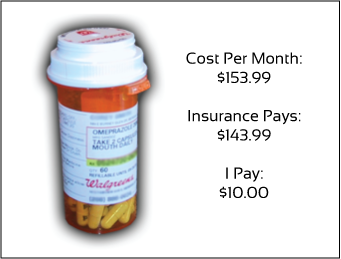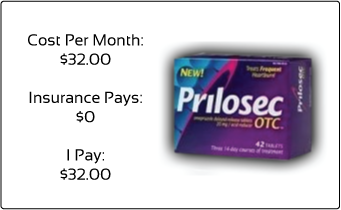Hold your horses. I am going to talk about health insurance.
However, I am going to avoid waxing too political... primarily because I am tired of the politics surrounding a financial decision. I am tired of the Democrats accusing the Republicans of being partisan and vice versa.
I think that if people understood that health insurance is a financial decision and not a decision based on "caring" or "compassion" then we would probably come to a solution to our problem. In fact, if people really thought about it, they would never want insurance but simply pay their own bills as they come up.
The premise of this post is that the problem with the health care debate is the assumption that health care insurance actually costs less than just paying for the service.
So, follow me on a couple of key concepts.
What really is insurance?
Let’s take just a moment to understand what insurance is… I mean what it is at the core.
 The primary purpose of insurance is to even out risk among the participants in the program.
The primary purpose of insurance is to even out risk among the participants in the program.
It is not a savings plan.
It is not a cost reduction plan.
It is not a discount services plan.
It is a plan that everyone in the group pays in to in order to spread risk out among its members.
Think of it this way. If my cost is low and yours is high, we average it out and pay the same amount. That means I pay more than I should and you pay less than you should.
Sounds very socialistic, doesn't it? That's because that's exactly what socialism is.
Insurance companies are not charities.
I don’t know what it is about politicians that think that if an insurance company makes a profit they are root of all evil. They have shareholders. They have employees that need to make money.
They have expectation of profit.
 In order for them to stay in business and even provide the insurance at all, they need to turn a profit. If they don’t turn a profit, then they aren't in business. If they aren’t in business, then they can’t provide insurance. If they can’t provide insurance, then you can’t buy it.
In order for them to stay in business and even provide the insurance at all, they need to turn a profit. If they don’t turn a profit, then they aren't in business. If they aren’t in business, then they can’t provide insurance. If they can’t provide insurance, then you can’t buy it.
Insurance companies don’t make as much profit as you think.
There is all the talk about insurance premiums raising and being absolutely ridiculous but the reality is they don’t make a lot of money for what they do.
The challenge is that when the politicians talk about their profit, they use the total dollars of profit instead of the percentage of profit.
Let me give you one simple example.
If I told you that Blue Cross and Blue Shield of Mass. in 2008 had a profit of $105.4 million you might be upset that they made so much money. If you live in Mass, and were a client of theirs, you might even be very upset that your rates are increasing.
The reality is that in 2008, their revenue was $6,670.8 million, which means that their profit margin was only 1.6%.
I’ll tell you right now that if my company only performed at 1.6% profit I would probably not continue to run the company. It just wouldn’t be worth it for me.
Insurance company profit isn’t why your premiums are raising
When rates go up 10%, 20% or even 50% (mine went up 23% last year), it is easy to get mad at them because of the cost of health care.
Their profits aren’t the key reason their rates are increasing. In our example above, their profits decreased nearly 50% from 2007… so that can’t be the reason for increases in cost.
Remember, they are a company. They make decisions as a company. They want their employees to have a nice place to work. They want to have an impressive location for their clients and vendors to see them. They have executives to pay. They have costs associated with running a business. They don’t always make smart business decisions, but many companies don’t. (You can’t tell me the government will do any better because they have proven time and again they do worse).
So, why are insurance rates so high?
There are two keys costs that you pay for as an insured.
First, you pay for the administration of all the bills the doctors send. You pay for them to vet the bill to make sure they are in plan. You pay them to make sure that the money is being spent properly. You pay them to provide a service. You pay for government regulations and for them to lobby to keep those government regulations at bay. I promise, those costs are way higher than the profit of the company… way higher.
Second, you pay for fraud. You pay for the people who try to game the system. Those that get one service but the doctor codes it as something else (I know, I used to have a dentist that did it all the time).
Competition is virtually non-existent.
Because of government regulation, the barriers to entry for new insurance companies are very high. There is no way that consumers can purchase across state lines and consumers have very limited choices. Those regulations increase the administration costs. Obamacare claims it will fix that but it seems more and more likely it will squash it.
Think simply about this.

So, let’s try to sum this up a bit. If the insurance was simply a spread of the risk across all it’s members, minimally, 50% of it’s members would being paying too much for insurance because at least 50% of its members would pay less than they should be paying.
Now, let’s add to that the small insurance company profits.
Now, let’s add to that the regulatory requirements and fees.
Now, let’s add to that all the administration fees.
Now, let's add the cost of all the employees that have to process your payments including their support staff.
Now, let's add the cost of their facilities.
Now, let's add all the legal and political costs.
Now, let’s add to that all the mistakes that business leaders always make.
We haven’t even discussed when they pay far more for services than they should… I think I'll write on that next week. Nor have we even addressed the cost to the doctors for having to submit for payment, hope it gets approved, waiting for payment with no interest and getting their costs fixed.
This means that at a minimum of greater than 50% (I would bet nearly 75% of insured) pay too much for the health care they are getting.
Bottom line… you pay too much for health care because of insurance.
If you would simply save your money and pay directly for health care instead of insurance premiums, then everyone would pay their fair share. Those that need the care would pay only for theirs and those that don’t need it won’t pay for everyone else.
Sure, some people would pay more, but more than 50% would pay less than they currently are. But, if you add everyone’s healthcare costs up then they would total less because of not having to pay all those other costs.






 The primary purpose of insurance is to even out risk among the participants in the program.
The primary purpose of insurance is to even out risk among the participants in the program. In order for them to stay in business and even provide the insurance at all, they need to turn a profit. If they don’t turn a profit, then they aren't in business. If they aren’t in business, then they can’t provide insurance. If they can’t provide insurance, then you can’t buy it.
In order for them to stay in business and even provide the insurance at all, they need to turn a profit. If they don’t turn a profit, then they aren't in business. If they aren’t in business, then they can’t provide insurance. If they can’t provide insurance, then you can’t buy it.